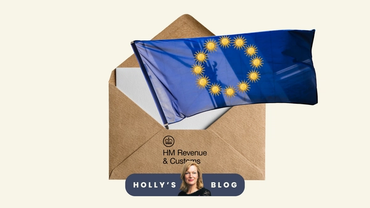Kangaroos' didgeridoos and ugly interest rates
4 Nov, 2022

I’m really scraping the barrel to find some good news this week. Ummmmm… Matt Hancock might be force-fed a kangaroo’s didgeridoo in The Jungle? Elon Musk is saving free speech by charging for it?
Closer to home, of course the Bank of England rained on pretty much everyone’s parade yesterday, hoiking interest rates up by a painful 0.75% to 3%. In the last 10 months, we’ve seen rates go up from 0.25% to 3%, and the pace of this - combined with our collective loss of muscle memory about what high interest rates feel like - are alarming many of us.
Here’s a quick digest of what I think (and I’m really sorry but in the absence of a magic money tree and a crystal ball, there are no easy answers…):
• Budgets – Sounds obvious but cutting costs where possible is key. When did you last check your direct debits? Turn the thermostat down. Take the odd lunch to work. Cancel some subscriptions?
• Debt – Expensive debt such as credit cards – pay this off as much as possible and prioritise the most expensive debt first. Can you get a 0% balance transfer credit card, for example?
• Cash buffer – The ‘rules’ say we should have at least 3 months’ income in easy access cash – try and build up this protective blanket for unforeseen emergencies.
Anyone lucky enough to have cash savings today, please please please don’t leave this in your current account. You will now get materially more in 99% of cases if you shop around!
• Mortgages – Painful for many of us. Those on variable or tracker rates will see monthly mortgage payments go up by around £50 a month after yesterday’s rise, for every £100k in your mortgage.
Roughly speaking, the average 2-year fix mortgage at the moment is around 6.5% – you can get slightly better deals than this but do look at all the other fees.
Average standard variable rates are similar, and have risen from an average of 3.5% in December last year. Ouch.
The markets are now anticipating the Bank of England interest rates will probably peak at around 4.75% next summer.
• Investments – The ‘recession’ word is here and we can see this playing out in front of us. Advertising spend online, usually an advance warning sign, has fallen off a cliff. Retailers and house builders have slumped. Tech firms are shedding staff. There’s some boring argument about whether we are technically in a recession or not yet, which kind of misses the point which is that the economy is stuffed for 2023 at least. Yay.
However… I have three words for investors. ‘Pound cost averaging’. Or ‘Markets on sale’. If you have timeframes of 3 years + then I think it’s a good time to invest, and drip feed in monthly rather than trying to time it (this is what pound cost averaging means – drip feeding in so you smooth the risk of buying in at the wrong time). New potential investors – worth considering that the main US index is about 23% cheaper today than it was in January.
• Pensions – of course people are looking to boost ‘today money’ and put ‘tomorrow money’ to one side. But make opting out of any workplace pension your last port of call – because you’re giving up free money from your employer. So you lose your additions and your employer additions and take a double hit.
Come on Holly, find some Jolly!
Ok [digging deep]. Yesterday, the Guv’nor of the Bank of England said “... the bank rate will have to go up by less than is currently priced into financial markets”.
Which means that the pantomime dames that are economists shrieked after the mini-Budget, grabbed the smelling salts and over-reacted. They shoved up fixed-rate mortgages too much. So we might gradually see these 2, 3 and 5-year fixes come down a bit.
The question for those with fixed rates coming to an end is this: Do you believe that we will be in a pretty horrid recession next year, which will naturally get rid of inflation as things slow down, and so the Bank will cut rates aggressively in the summer to ease the pain? If so, then your choice is either: a) to wear an unpleasant high standard variable rate for the next 9 months (ish?) and to hope then to get a lower fix next Autumn which will be cheaper in the round or b) put a high price on peace of mind and knowing what to expect. In which case, a 2-year fix will make you feel less anxious because you prefer the certainty of an unpleasant number over the risk of not knowing a potentially better number.
I am sorry there’s no correct exam answer here. It’s tough.
Heeeeelp…
We do have some help with experts available to readers coming up.
Next Tuesday at 6pm, I’m hosting a webinar with Invesco’s rather brainy Dr Christopher Mellor, who is the boss of ETF Equity and Commodity Product Management. This roughly means his gig is to look at making good products available which package up low-cost, ready-made collections of shares and commodities for investors to buy on a stock exchange. I have loads of questions on markets, regions, sectors – and we’re doing a deep dive into clean energy ETFs at the end too. Join us. Ask your questions. Get the latest. Or register to watch on catch-up.
Finally, thanks to everyone last week who joined our reader research panel, to share a view and earn a bit on the side, and enter our prize draw in November for 3 x £100 Amazon vouchers! Anyone interested in helping our research team, please join our panel.
Thanks everyone. Have an explosive weekend and here’s a last money-saving hack – take your own thermos flask of mulled wine to the fireworks. Save a fiver and half an hour in the queue! Add in an extra splash of something and forget about the economy for an evening! Always glad to help with sage, healthy tips. xxx
Holly











